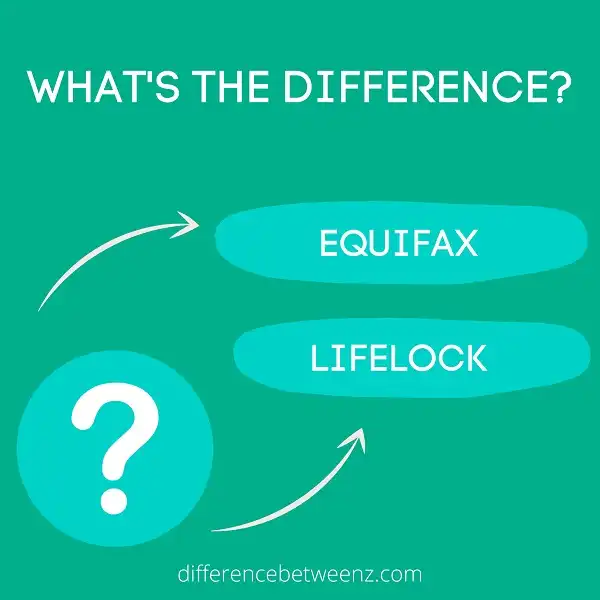Experts often recommend using a credit monitoring service to help identify identity theft and activity on your credit report. Two of the most popular services are Equifax and Lifelock. So, which one is right for you? Let’s take a look at the differences between the two services. Equifax offers a free credit monitoring service that will alert you of any changes to your credit report. However, if you want additional features like fraud detection or identity theft insurance, you’ll need to pay for a subscription. Lifelock offers a variety of plans, some of which include identity theft insurance. They also offer more features than Equifax, such as lost wallet protection and black market surveillance.
What is Equifax?
Equifax is a credit reporting agency that provides credit reports to businesses and consumers. Equifax gathers information from various sources, including banks, lenders, and credit card companies, and uses this information to create credit reports. These reports are used by businesses to make lending decisions, and by consumers to understand their credit history and track their credit score. Equifax also offers a variety of other services, such as identity theft protection and credit monitoring. Given its importance in the financial world, Equifax has come under increased scrutiny in recent years. In 2017, the company experienced a data breach that exposed the personal information of over 145 million people. Equifax has since taken steps to improve its security practices, but the incident has raised concerns about the safety of using its services.
What is Lifelock?
Lifelock is an American company that provides a suite of identity theft protection services. Lifelock monitors various data sources for indications that a customer’s personal information has been compromised, and takes action to help remediate any such instances of fraud. The company also offers products that aim to prevent identity theft, such as credit monitoring and dark web surveillance. Lifelock was founded in 2005 and was acquired by Symantec in 2017.
Difference between Equifax and Lifelock
Equifax and Lifelock are two companies that offer credit monitoring and protection services. Both Equifax and Lifelock provide customers with the ability to monitor their credit reports and scores, as well as receive alerts if there is suspicious activity. Equifax also offers a service that puts a fraud alert on your credit report, which makes it more difficult for someone to open new accounts in your name. In contrast, Lifelock provides customers with up to $1 million in identity theft insurance, as well as 24/7 support from certified resolution specialists. Both Equifax and Lifelock offer similar services, but there are some key differences between the two companies. Equifax is a credit reporting agency, while Lifelock is an identity theft protection service. Equifax offers a fraud alert service, while Lifelock offers identity theft insurance. Equifax has been in business since 1897, while Lifelock was founded in 2005. Equifax is a publicly traded company, while Lifelock is a privately held company. Equifax has approximately 10,000 employees, while Lifelock has approximately 700 employees.
Conclusion
Equifax and Lifelock are two companies that offer credit monitoring services. They both have their pros and cons, but which one is the better choice for you? Let’s take a look at the difference between Equifax and Lifelock to see which company would be a better fit for your needs. Equifax offers credit scores, credit reports, and fraud detection. Lifelock offers all of this plus identity theft protection. If you are more interested in protecting your identity than getting regular credit score updates, then Lifelock would be the better choice for you. However, if you are mainly interested in getting alerts about changes in your credit report, then Equifax would be a better option.


